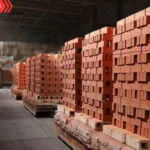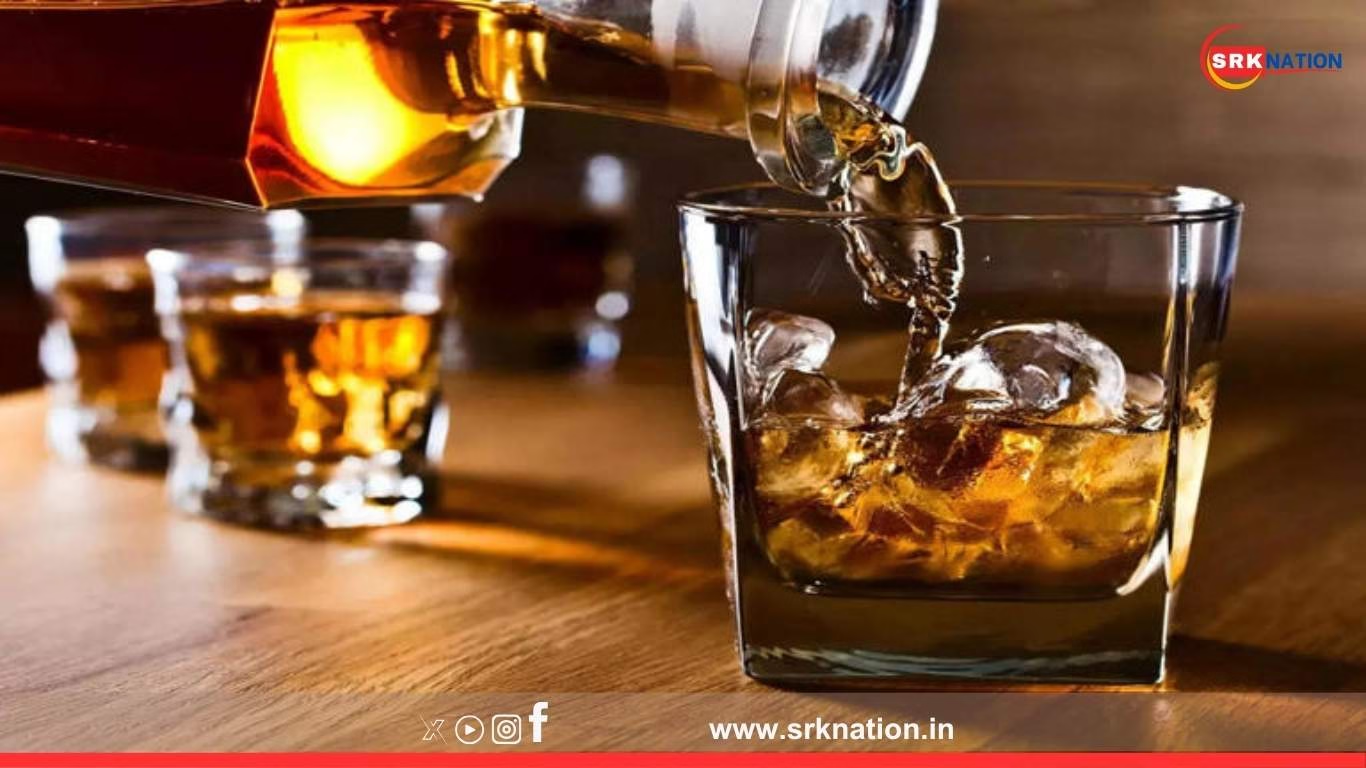India’s burgeoning alcohol industry has raised red flags over persistent non-tariff barriers in the United Kingdom, even as the two countries inch closer to a free trade agreement (FTA). Despite ongoing negotiations that promise to unlock vast trade opportunities, Indian liquor manufacturers allege that the UK’s complex regulatory requirements, high costs of compliance, and discriminatory labelling norms are creating invisible hurdles — limiting access to one of the world’s most lucrative alcoholic beverage markets.
The Indian alcoholic beverage industry, especially premium whisky producers, has been lobbying for greater transparency and equity in trade practices. While tariffs have been the focal point of discussions, industry leaders now demand that non-tariff barriers (NTBs) be treated with equal seriousness.
India’s Alcohol Exports to UK: Promise Meets Resistance
India’s liquor exports to the UK have grown in recent years, driven by high-end Indian whiskies gaining international acclaim. Brands like Amrut, Rampur, and Paul John have earned global recognition, challenging traditional Scotch supremacy.
However, alcohol trade between the two countries still faces friction. The Indian industry alleges that NTBs — ranging from elaborate documentation requirements to labelling rules and testing procedures — are hampering the competitiveness of Indian products in the UK market.
| Year | India’s Alcoholic Beverage Exports to UK (in million USD) | Growth (%) |
|---|---|---|
| 2020 | 22.4 | — |
| 2021 | 29.8 | 32.9% |
| 2022 | 35.1 | 17.8% |
| 2023 | 38.5 | 9.7% |
| 2024 (est.) | 42.7 | 10.9% |
Despite positive export growth, stakeholders say that Indian whisky still lacks proportional shelf space in British retail outlets and bars, hinting at invisible barriers beyond tariffs.
What Are Non-Tariff Barriers?
Non-tariff barriers refer to restrictions that make imports difficult or expensive without using direct taxes. These include:
- Technical regulations and complex labelling requirements
- Mandatory laboratory testing and certifications
- Excessive paperwork and bureaucracy
- Discriminatory packaging and marketing restrictions
- Standards favouring domestic producers
For Indian alcohol producers, these restrictions often translate to long delays, increased costs, and uncertain market entry timelines.
Key Complaints by Indian Alcohol Industry
The Confederation of Indian Alcohol Manufacturers (CIAM) and other industry bodies have submitted detailed complaints to the Ministry of Commerce and Industry, citing the following as pressing issues in the UK market:
| Non-Tariff Barrier | Impact on Indian Alcohol Producers |
|---|---|
| Stringent labelling rules | Requires redesign of packaging for UK market at added cost |
| Compulsory organoleptic testing in UK labs | Results in long delays and increased compliance expenses |
| Lack of mutual recognition of Indian standards | Forces dual certification, doubling paperwork and costs |
| Promotional restrictions on imported spirits | Limits brand visibility and advertising in pubs and stores |
| Listing fees and slotting charges | High entry cost into UK retail chains and restaurants |
The Indian side has also pointed out that while British spirits enjoy preferential treatment in India under existing rules, the same spirit of reciprocity has not been honoured by the UK.
Industry Speaks: Frustration Mounts
Praveen Sharma, spokesperson for a major Indian whisky brand, said:
“The barriers are subtle but suffocating. You complete one set of tests, only to be asked for another. Meanwhile, a Scotch producer can launch in India with ease under preferential access granted through WTO and other treaties.”
Similarly, an executive from a Goa-based alcohol export firm noted:
“The labelling requirements alone are a nightmare. Each SKU needs specific adaptation for the UK — even though the same product passes Indian and EU standards. This makes small and medium producers reconsider the UK market altogether.”
UK’s Counterpoint: Public Health and Consumer Safety
The British authorities, on their part, argue that these regulations are designed to protect public health and ensure quality. The UK’s Food Standards Agency (FSA) and Port Health Authorities claim the checks are uniform across importers, regardless of country of origin.
However, industry insiders argue that large Scotch conglomerates benefit from historical presence and established routes, giving them a competitive edge that newcomers, including Indian companies, find hard to match.
A Disproportionate Playing Field?
| Parameter | Scotch Whisky in India | Indian Whisky in UK |
|---|---|---|
| Tariff Rate | 150% (high, but under review) | Low (post-Brexit flexibility) |
| Non-Tariff Barrier Count | Minimal | High |
| Labelling Requirements | Standardized for most imports | Customized & frequent changes |
| Testing Protocols | Indian labs accepted | UK lab mandatory |
| Market Penetration | Deep (over 70% of premium segment) | Limited (<10% shelf visibility) |
The table above illustrates the contrast: while Scotch whisky dominates the Indian premium spirits market, Indian whisky brands still struggle for visibility and equitable access in the UK.
FTA Talks: Will They Address Non-Tariff Barriers?
As the India-UK FTA enters its final rounds, hopes are high that the agreement will address NTBs explicitly. The Indian government has reportedly insisted that the FTA must include provisions for:
- Mutual recognition of food safety and alcohol testing standards
- Streamlined customs procedures for alcohol imports
- Easing labelling norms or providing transitional relaxation
- Inclusion of fair competition clauses for retail access
Trade analysts believe the success of the FTA will not merely depend on tariff cuts but on how non-tariff bottlenecks are eliminated.
The Bigger Picture: India’s Beverage Sector on Global Stage
India’s alcoholic beverage market is poised for substantial export expansion. The sector is estimated to grow at a CAGR of 7.5% and could reach USD 52 billion by 2030. India’s premium liquor brands are now regularly featuring in international competitions and gaining acceptance across Europe, the US, and Japan.
However, access to developed markets like the UK is critical for India to become a major player in global alcohol exports.
Recommendations by Industry Associations
In recent policy papers, Indian trade and industry associations have urged both governments to:
- Create bilateral inspection agreements between UK and FSSAI
- Allow third-party labs with international accreditation to test products
- Cap promotional and listing fees to facilitate SME entry
- Form a joint task force to identify and resolve trade frictions periodically
If adopted, these measures could substantially level the playing field and help unlock the true export potential of Indian-made spirits.
Conclusion
The Indian alcohol industry’s concerns over non-tariff barriers in the UK are not just technical gripes — they represent a deeper struggle for fairness, visibility, and recognition in a global market. As FTA talks between India and the UK gain momentum, the spotlight is now firmly on ensuring that regulatory barriers do not turn into de facto trade walls.
With global acclaim, rising domestic production quality, and a willingness to comply with international standards, Indian spirits are ready to conquer new markets — provided the gates are truly open.
Disclaimer: This article is intended for informational purposes only and does not constitute trade, business, legal, or policy advice. Readers should consult relevant regulatory authorities or professionals for guidance on alcohol trade and export rules.











